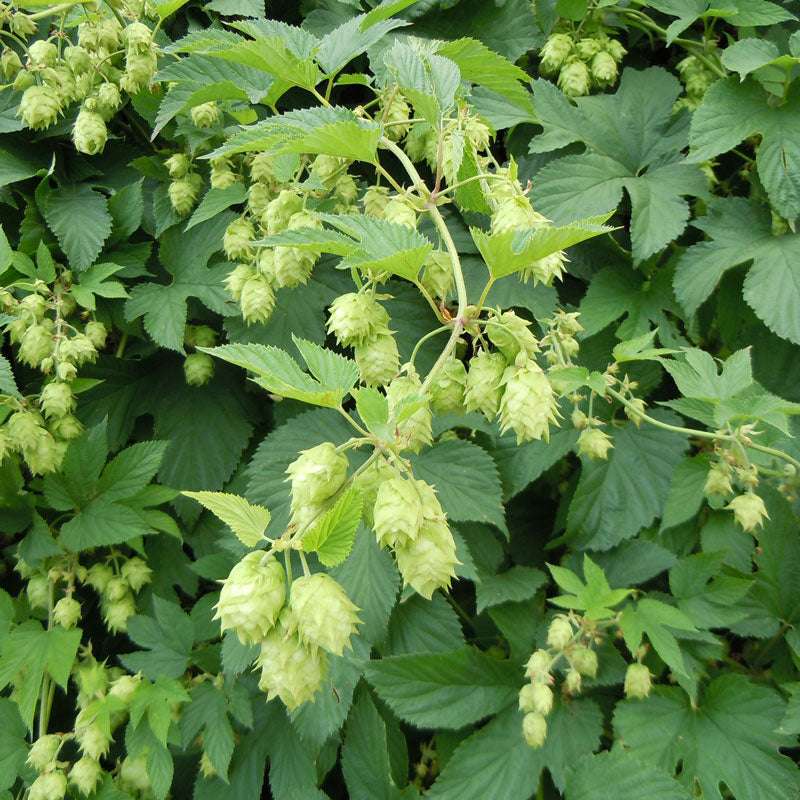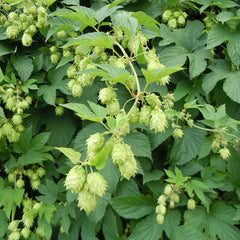

Hops (Humulus lupulus)
- $16.00 CAD
- $16.00 CAD
- Unit price
- per
50g, 100g, 250g
Couldn't load pickup availability
Parts used: Flowers
Properties
Alterative, anodyne, antibacterial, antibiotic, antineoplastic, carminative, cholagogue, galactagogue, nervine, sedative, stomachic, vulnerary
Primary nutrients
Chlorine, copper, fluorine, iodine, iron, lead, magnesium, manganese, sodium, vitamin B-complex, zinc
Hops are best known for their sedative action. They are also used for their antibiotic properties, which are beneficial for sore throats, bronchitis, infections, high fevers, delirium, toothaches, earaches and pain. Hops seem to be strong but safe to use. Their main uses are to alleviate nervous tension and promote a restful sleep. They have been used to relieve insomnia naturally. A poultice of hops is recommended for inflammation, boils, tumors and swelling. Hops have been used as a stimulant to the glands and muscles of the stomach and also as a relaxant on the gastric nerves. They also have a relaxing influence on the liver and gall duct and a laxative effect on the bowels.
Studies indicate hops as having sedative properties. They are known to be fast-acting, soothing, and calming on the nervous system. Hops are one of the nervine herbs and aid in promoting sleep. Hops are also used for their antispasmodic effects. Hops contain antibacterial properties, validating some of their historical uses.
Primary Applications
Appetite loss
Bronchitis
Delirium
Gastric disorders
Headaches
Hyperactivity
Indigestion
Insomnia
Lactation, absent
Nervousness
Pain
Sexual desire, excessive
Secondary Applications
Alcoholism
Anxiety
Blood impurities
Coughs
Cramps, intestinal
Dizziness
Earaches
Fevers
Gas
Indigestion
Jaundice
Kidney stones
Liver disorders
Menstrual symptoms
Menopausal symptoms
Neuralgia
Restlessness
Rheumatism
Skin disorders
Sleeplessness
Toothache
Ulcers
Venereal diseases
Water retention
Whooping couch
Worms
50g, 100g, 250g
RELATED PRODUCTS
- Choosing a selection results in a full page refresh.


